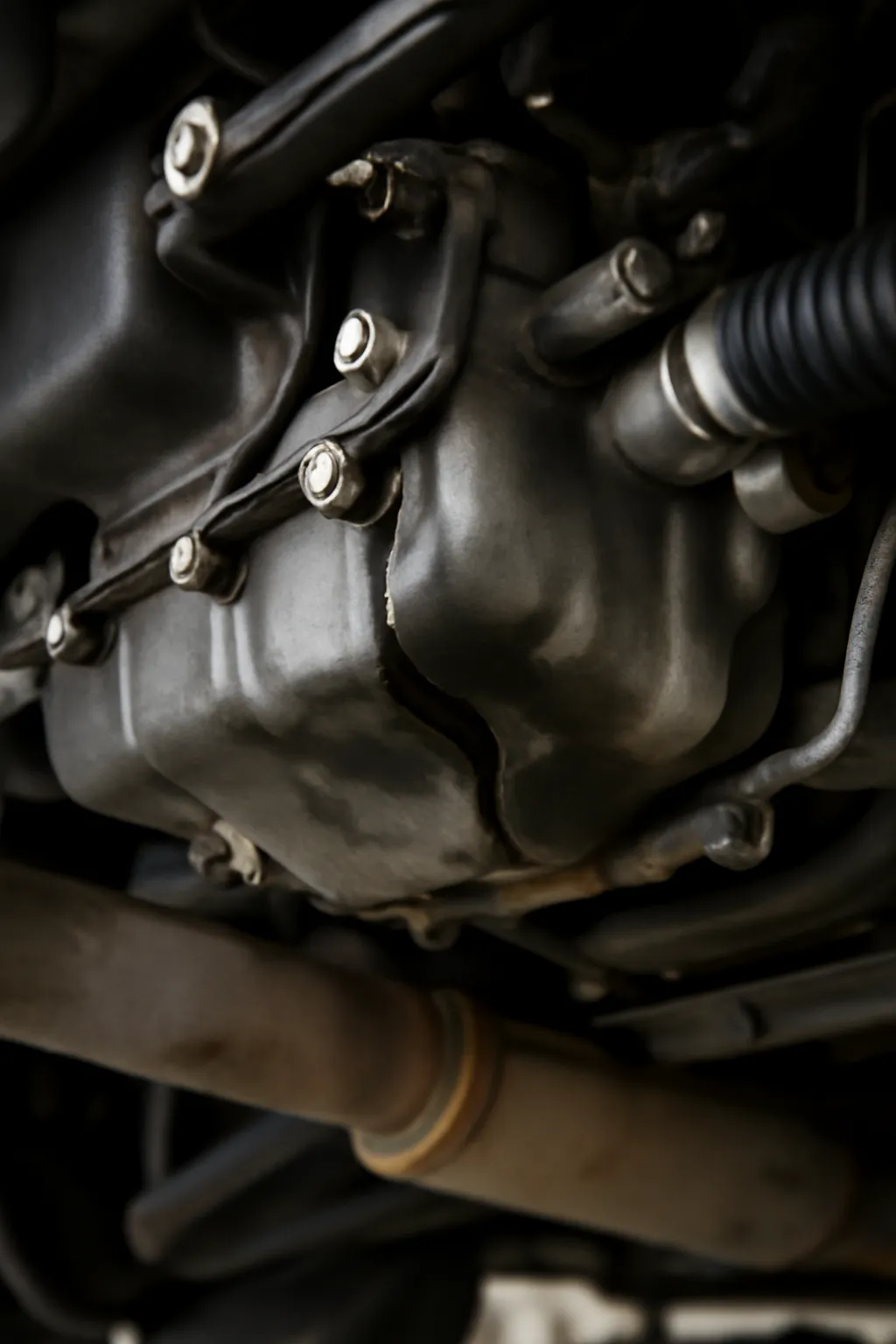Engine oil leakage is a common issue that affects many vehicles, often leading to engine damage and costly repairs. Understanding how engine oil leakage occurs and the principles behind preventing it is crucial for maintaining your vehicle’s performance and longevity. In this article, we will explore the mechanics of engine oil leakage, how leaks can be prevented, and the technologies used to protect against such leaks.
What Causes Engine Oil Leaks?
Engine oil leaks can occur for various reasons, with the most common being poor maintenance, faulty parts, and wear and tear over time. A vehicle’s engine oil is essential for lubrication, preventing the internal engine parts from grinding against each other. The oil is kept within the engine through various seals, gaskets, and the oil pan. Over time, these components can degrade, crack, or become loose, leading to oil leakage.
The engine oil leakage usually happens at weak points such as:
-
Oil Pan Gasket This part can crack, causing oil to leak.
-
Cylinder Head Gasket When this gasket fails, oil can leak out.
-
Oil Filter If not properly installed or if it becomes worn out, it may lead to leakage.
-
Seals Around the Crankshaft and Camshaft These seals can wear over time, allowing oil to escape.
How Does Engine Oil Leakage Protection Work?
Protecting your engine from oil leaks is possible through proactive maintenance, effective design features, and the use of advanced materials. Modern engine designs and technologies aim to prevent oil leaks by addressing potential weak points. Here are the main principles of oil leakage protection:
1. Advanced Gaskets and Seals
One of the most effective ways to prevent engine oil leaks is by using high-quality gaskets and seals. These parts are designed to withstand high pressures and temperatures that are common inside an engine. Modern gaskets are made from durable materials like silicone or rubber, which are highly resistant to wear and extreme conditions.
For example, when manufacturers use multi-layer steel gaskets, they ensure a tighter seal around the engine components. This reduces the chances of oil escaping from the engine. Seals around the crankshaft and camshaft are also designed to prevent leaks from these critical areas.
2. Regular Maintenance and Inspections
Routine maintenance, such as replacing worn-out gaskets, tightening bolts, and checking the oil filter, is essential for protecting the engine from leaks. Vehicle owners should also monitor the oil levels and look for signs of leaks, such as oil spots on the ground or unusual engine noise.
Regularly inspecting the engine components and addressing issues like cracked hoses or loose connections can prevent the progression of leaks. Changing the oil at recommended intervals ensures the lubrication system is functioning at optimal levels and prevents damage to seals and gaskets.
3. Improved Oil Pan Designs
The oil pan is one of the most common areas where leaks occur. Many modern vehicles feature reinforced oil pans designed to resist corrosion and cracking. These pans are also equipped with thicker, durable gaskets that form a better seal. Additionally, some vehicles are now incorporating integrated oil pan designs with self-sealing properties, which significantly reduce the risk of leakage.
By utilizing materials like aluminum and composites, manufacturers have improved the durability of oil pans, making them less prone to leaks. In some advanced engines, oil pans are also equipped with reinforced structures that prevent them from warping under high heat and pressure.
4. Oil Pressure Management Systems
In modern engines, oil pressure is carefully controlled to ensure optimal lubrication without excessive force. High oil pressure can cause seals and gaskets to fail, leading to oil leakage. To counter this, manufacturers have incorporated pressure regulation systems that adjust oil pressure to maintain the correct levels for efficient engine operation.
These systems typically use oil pressure sensors and regulators to monitor and adjust pressure, ensuring that it remains within safe limits. By controlling oil pressure, these systems help reduce the risk of leaks caused by over-pressurization.
Why Engine Oil Leakage Protection Matters
The importance of engine oil leakage protection cannot be overstated. If left unchecked, oil leaks can lead to severe engine damage, reduced performance, and costly repairs. Here are some of the reasons why engine oil leakage protection is critical:
1. Preventing Engine Damage
When oil leaks out of the engine, it reduces the amount of lubrication available for the internal components. This can lead to increased friction, overheating, and eventual engine failure. A small leak can quickly escalate into a major issue if not addressed promptly, requiring expensive repairs or even a complete engine replacement.
2. Maintaining Vehicle Performance
Engines rely on oil to maintain smooth operation. When oil levels drop due to a leak, it can cause the engine to run inefficiently. This may lead to reduced fuel economy, poor acceleration, and higher emissions. By protecting the engine from oil leaks, you ensure that the vehicle continues to perform at its best.
3. Cost Savings
By preventing oil leaks and addressing them before they become serious, you can save a significant amount of money in repairs. Leaks that go unnoticed for a long time may cause other parts to fail, leading to a chain reaction of expensive fixes. Early detection and protection can help keep repair costs down.
Conclusion
In conclusion, understanding and preventing engine oil leaks is essential for maintaining the health and longevity of your vehicle’s engine. Through the use of high-quality seals, gaskets, oil pans, and oil pressure management systems, manufacturers have made significant strides in preventing oil leaks. Regular maintenance and timely inspections are also key to ensuring that oil leakage does not cause long-term damage to your engine. By staying proactive and investing in the protection of your engine, you can avoid costly repairs and ensure your vehicle operates efficiently for years to come.






